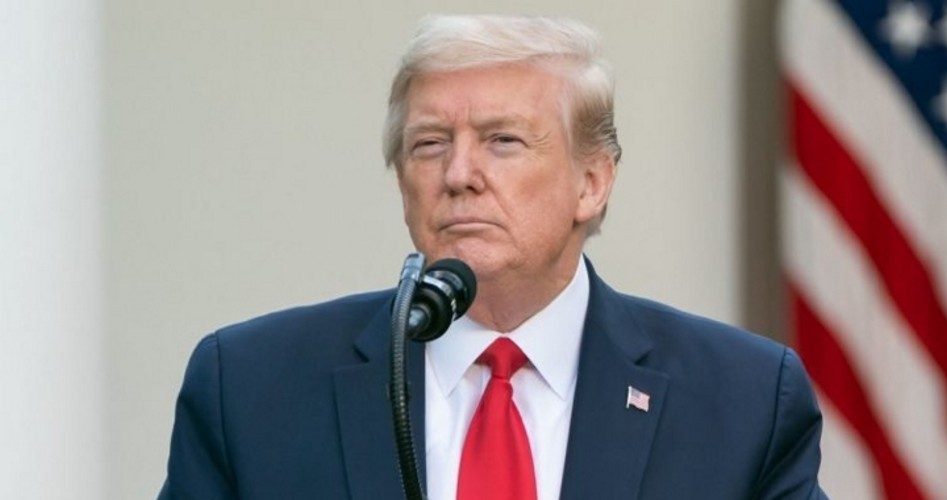
Stony Brook University political science professor Helmut Norpoth appeared on Lou Dobbs Tonight on Friday, predicting that President Donald Trump has a 91 percent chance of winning reelection in November.
He’s been making the media rounds, and his prediction, for months. On May 29, in an interview on The Ingraham Angle, he explained: “The key to the November election is the primaries. And the primaries are already giving us a lot of information.”
On June 20 he told the New York Post: “I don’t remember any uncontested campaign for a sitting president like this. People don’t normally turn out in large numbers for a race without a challenger.” But in 23 of the 27 states that held primaries this year the president has racked up higher totals than President Obama did — often doubling or tripling his numbers
For example, in Michigan’s March primary, Trump won 639,144 votes, vastly outnumbering the 174,054 votes that Obama received in 2012. In Ohio Trump secured 713,546 votes, more than twice Obama’s 285,990 votes he gained in 2012.
In Wisconsin, Trump won the primary with 616,705 votes, compared to the 293,914 Obama won in 2012. In Rhode Island, Trump secured 19,006 votes versus the 6,749 Obama won in 2012. In Georgia, Trump ran away with 925,212 votes compared to the 139,273 votes Obama won in 2012.
Said Norpoth: “If you can get people to come out for a primary that isn’t even a contest, you have them hooked…. It’s that stronger performance in primaries that gives Donald Trump the edge in November.”
Norpoth’s “Primary Model” predicted Trump’s win in 2016. Before the election he wrote: “It is 87% to 99% certain that Donald Trump will win the presidential election on November 8, 2016; 87% if running against Hillary Clinton, 99% if against Bernie Sanders.”
In addition Norpoth factors in the first term “bounce” that favors a first-term incumbent for reelection for a second term. Since 1964 the first-term incumbent has won reelection six times out of seven.
And Norpoth thinks Trump’s handling of the COVID virus provides additional support for him in November. Writing in his Primary Model, he says, “The Coronavirus outbreak appears not to have damaged Trump’s reelection prospects … in fact, the battle against the virus may help his reelection prospects by casting Trump as a wartime president, as [has] happened with other presidents.”
The model uses data going back to 1912, the first year when there were primary elections leading up to the general election. Writes Norpoth:
The Primary Model gives President Trump a 91% chance of winning a possible match-up with Democrat Joe Biden in November, based on primary performance in New Hampshire and South Carolina, plus the first-term electoral benefit.
Trump would get 362 electoral votes, Biden 176.
Professor Norpoth touts the accuracy of his model:
Presidential elections going back as far as 1912 are used to estimate the weight of primary performance. It was in 1912 that presidential primaries were introduced. That year the candidate who won his party’s primary vote, Woodrow Wilson, went on to defeat the candidate who lost his party’s primary vote, William Howard Taft.As a rule, the candidate with the stronger primary performance wins against the candidate with the weaker primary performance. For elections from 1912 to 2016, the PRIMARY MODEL picks the winner, albeit retroactively, every time except in 1960 and 2000.
In his interview with Dobbs on Friday night, Dobbs asked him if other pollsters who got it so wrong in 2016 have been in touch with him to learn how they could model his success. Said Norpoth: “I’m still waiting for that call.”
Photo of President Trump: White House
An Ivy League graduate and former investment advisor, Bob is a regular contributor to The New American primarily on economics and politics. He can be reached at [email protected].
Related article:



